California Polytechnic State University to use Gentec-EO’s laser beam profiler BEAMAGE-4M
Monday, May 16, 2022
Monday, May 16, 2022
The Electrical Engineering Department of California Polytechnic State University won a BEAMAGE-4M at our most recent Laser Lab Awards contest.
The laser beam profiler is to be used to investigate methods of increasing 3D imaging functionalities for this technology to be converted to a consumer device.
Trapping duration for existing 3D imaging technologies is insufficient for consumer use as implementations for photophoretic trapping longer than 60 seconds are costly.
3D imaging technology is realized by dragging a microscopic (micrometerscale) particle with a laser beam to trace the image. This technology can display fully colored and high-resolution 3D images visible from almost any direction.
With further research this could have numerous consumer electronic applications. Researchers at BYU have constructed a low-cost photophoretic trap with similar characteristics that can trap a particle for 60 seconds maximum.
Ensure you purchase the most optimal solution for your measurement needs with this checklist. Download it now, it's helpful and free!Buyer's checklist for laser power & energy meters
The photophoretic trap constructed in this study allows for large variations in focal length. By investigating how focal length variations affect the duration of a trapped particle, it can be shown that higher focal lengths on printer toner particles allow for longer trapping. More importantly, our findings can help advance this 3D imaging technology toward eventual commercialization.
While materials are still being gathered for the final setup, this initial test seeks to show how the BEAMAGE-4M beam profiler will be used to test the beam characteristics at the trapping site. A beam expander will be placed at the trapping site as an accurate profile cannot be obtained with the beam diameter at the trapping site being micrometers long.
From there, both the profiler and concave lens will be shifted along the direction of beam propagation to verify the intensity minima and maxima that promote photophoretic trapping.
This initial test shows that the concave lens still preserves some characteristics of the beams profile where the concave lens is present. It is shown that different exposure values are necessary for maintaining an appropriate reading through Gentec-EO’s software.
These different exposure values pertain to the intensity of the beam for a given diameter. An iris diaphragm is placed in front of the concave lens to verify this loss in intensity. The results show that this beam profiler will be sufficient in displaying intensity variation along the beam’s propagation.
The first instance of this setup uses a 405nm laser at 30mW where the beam is expanded through a 25mm Bi-Concave lens. For this setup, the exposure is set to 4ms to get an appropriate beam profile.
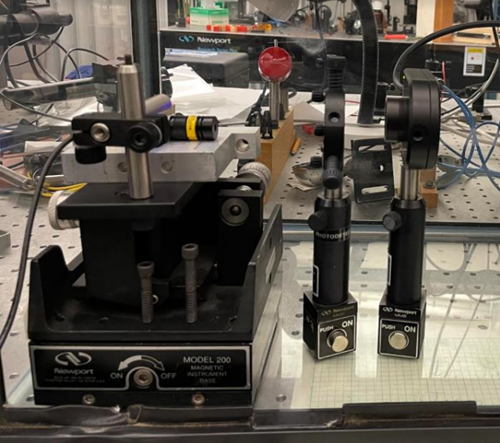
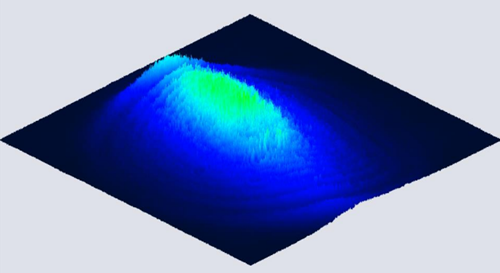
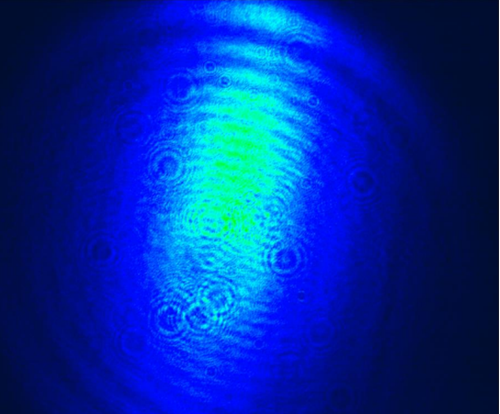
The second instance of this setup uses the same 405nm laser at 30mW where the beam is expanded through a 25mm Bi-Concave lens, then attenuated through an iris diaphragm. For this setup, the exposure is set to 35ms to get an appropriate beam profile. This large increase in the beam profiler’s exposure value indicates the attenuation proportions. In the trapping investigation, exact power values will not be necessary to prove intensity variations, but rather a delta is necessary between small adjustments along the beam’s propagation.
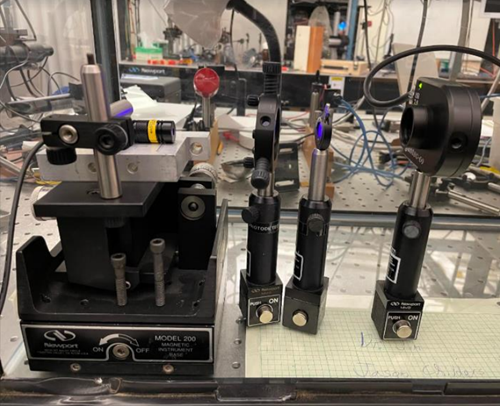
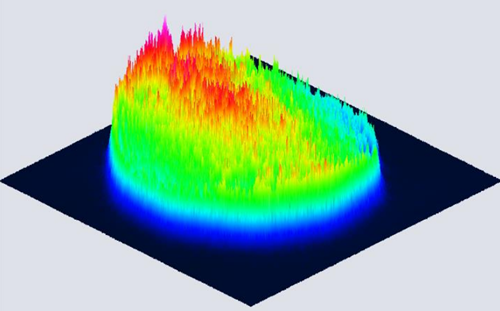
Gentec-EO can only be proud of seeing its products being used in such an interesting way! Congratulation to the Electrical Engineering Department of California Polytechnic State University for their prize.